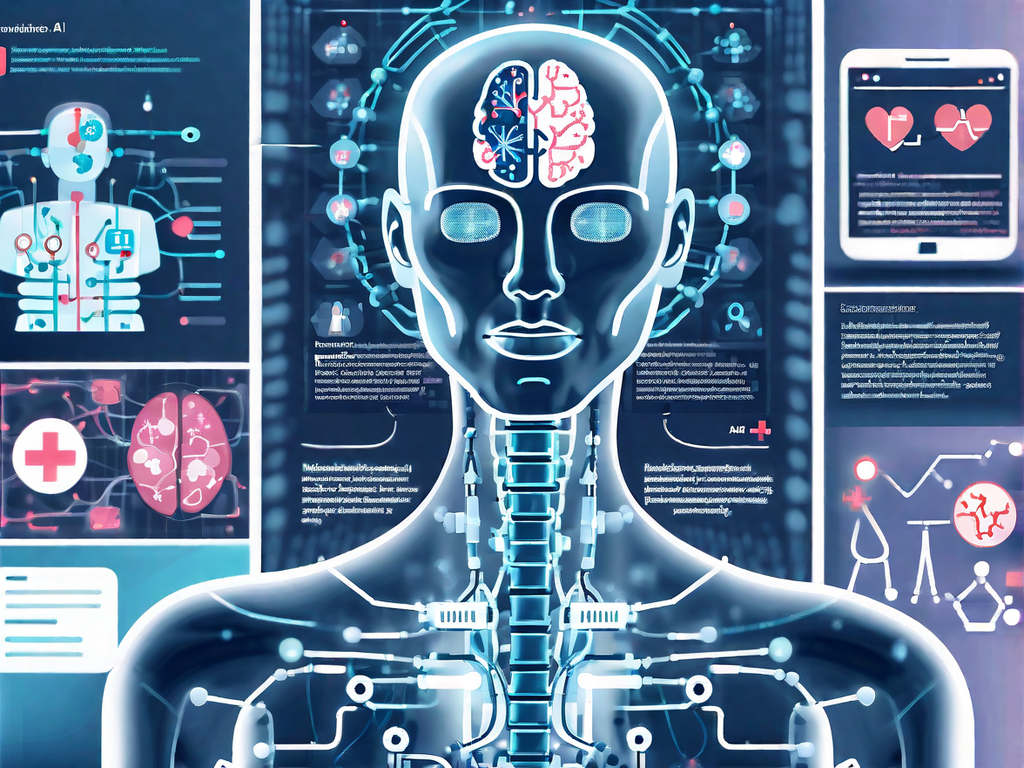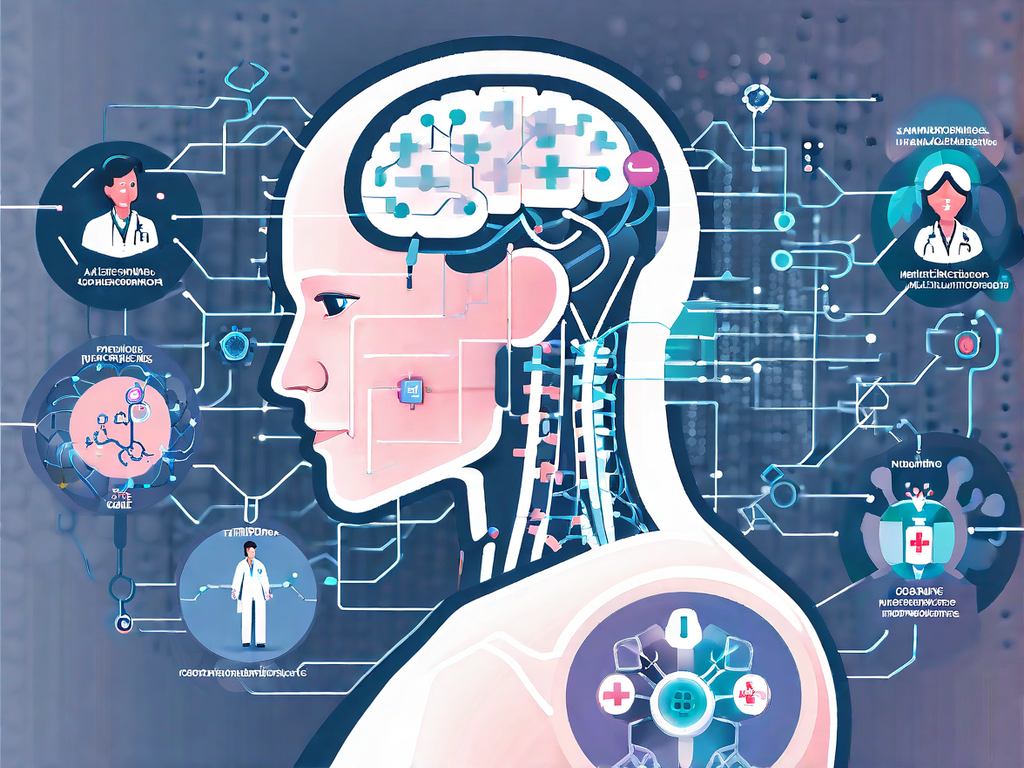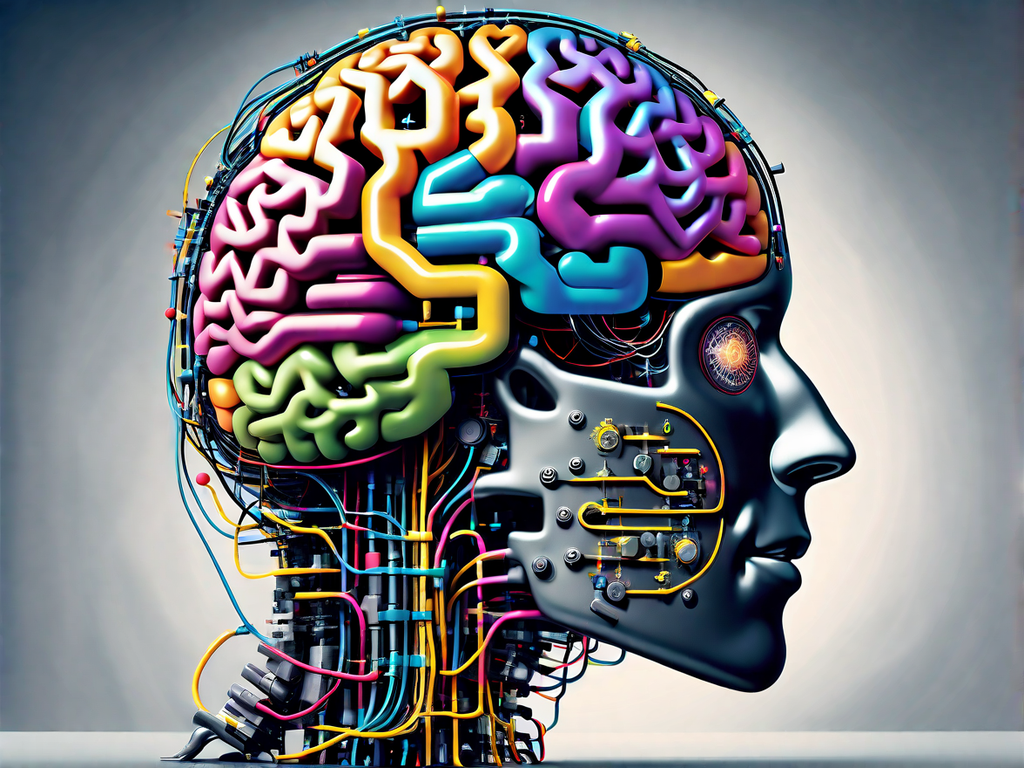In the ever-evolving landscape of healthcare, artificial intelligence (AI) stands as a groundbreaking innovation, reshaping the way we diagnose and treat medical conditions. In this article, we’ll delve into the realm of AI-powered healthcare, providing expert insights founded on practical experience, scientific data, extensive knowledge, and comprehensive studies. Join us on a journey through the transformative potential of AI in the field of medicine.

The AI in Healthcare Foundation
Precision Diagnosis through Machine Learning
One of the pivotal areas where AI is making its mark is in the realm of diagnosis. Machine learning algorithms can analyze vast datasets with unprecedented speed and accuracy, helping healthcare professionals identify diseases at their earliest stages.
Personalized Treatment Plans
AI’s capacity to process enormous amounts of data, including patient records, clinical studies, and genomic information, allows for the development of personalized treatment plans. This tailoring of medical interventions can significantly improve patient outcomes.
AI in Action

Medical Imaging Advancements
AI is redefining medical imaging, enhancing the precision of diagnostics through technologies like computer-aided detection (CAD) and enabling early detection of conditions such as cancer, diabetes, and cardiovascular diseases.
Drug Discovery Acceleration
The drug discovery process is notoriously time-consuming and expensive. AI streamlines this process by analyzing vast databases of chemical compounds and predicting potential drug candidates with a high degree of accuracy. This can expedite the development of life-saving medications.
Challenges and Ethical Considerations
As AI systems handle sensitive patient data, maintaining robust data privacy and security measures is paramount. Striking the right balance between data sharing and patient privacy is a challenging but essential task.
Regulatory Frameworks and Accountability
The rapid evolution of AI in healthcare necessitates equally swift regulatory adaptation. Establishing comprehensive guidelines and ensuring accountability for AI-driven decisions are essential components of a responsible AI-powered healthcare ecosystem.
The Promise of Enhanced Accessibility
AI technologies empower remote medical care, improving access to healthcare services for individuals in remote or underserved areas. Telemedicine and remote monitoring can be game-changers in ensuring healthcare accessibility.
As we embrace the era of AI-powered healthcare, the possibilities are both awe-inspiring and challenging. The ability of AI to enhance diagnosis, treatment, and patient care is transforming the medical landscape. With machine learning algorithms at the helm, we’re witnessing an era of precision medicine that promises to improve patient outcomes and reduce healthcare costs.
Nonetheless, as we forge ahead into this brave new world of healthcare, we must remain vigilant. Data security, ethical considerations, and the development of regulatory frameworks are essential to ensure AI in healthcare remains a force for good.
The rise of AI-powered healthcare is marked by unparalleled potential. From revolutionizing diagnostics and enabling personalized treatments to expanding healthcare access through telemedicine, we are on the cusp of a transformative era in medicine. As AI continues to evolve and integrate into healthcare systems worldwide, the true benefits and challenges of this groundbreaking technology will become increasingly apparent.
































